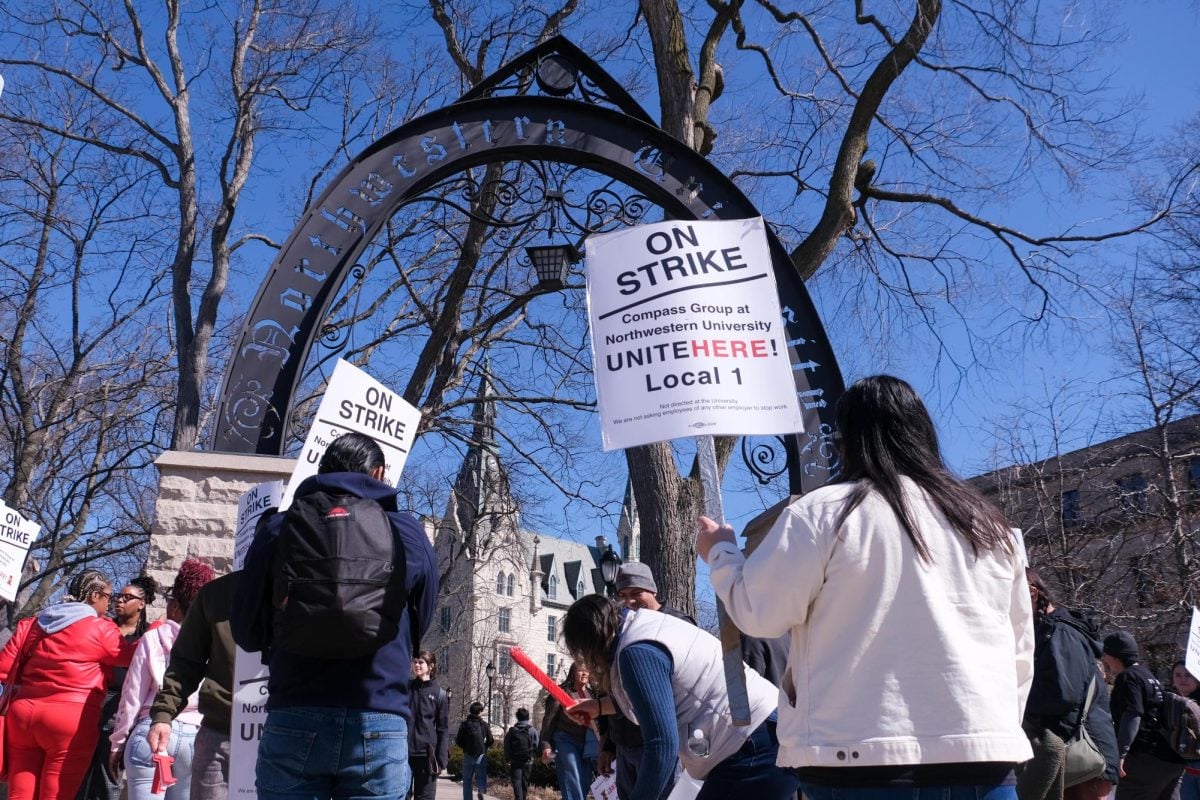Formerly incarcerated individuals and criminal justice professionals advocated for the return of parole to Illinois at a panel hosted by the Northwestern Prison Education Program at Norris University Center Monday night.
Parole was abolished from Illinois in 1978, in part because parole board decisions were identified as racially discriminatory. Many in the criminal justice system believed its abolition would lead to fairer sentencing from the offset, but with tough on crime policies and fewer ways to get out of prison, incarceration rates skyrocketed. NPEP panelists called for a reformed system of parole to change this and give incarcerated people a chance at reintegration.
NPEP is a NU initiative to provide high-quality liberal arts education to incarcerated students, according to its website. In 2023, NPEP began its Justice Fellows Program, giving five individuals directly impacted by incarceration the opportunity to work with NPEP.
Sammy Horowitz, a Justice Fellow who was formerly incarcerated and now works in Hollywood as a screenwriter, moderated Monday’s discussion. He began by acknowledging that many people in prison don’t belong there.
For almost 50 years, Horowitz said, there’s been almost no ways for incarcerated individuals to demonstrate their rehabilitation.
“You can learn the entire story of the criminal justice system, even more than in the courts, through parole,” said panelist Ben Austen, a journalist and author of “Correction: Parole, Prison, and the Possibility of Change.”
Parole was established in the U.S. more than 100 years ago because people believed prisons were supposed to do more than just punish people, Austen said. They were supposed to rehabilitate people, and parole boards were created for this purpose, he added.
But there were all sorts of problems with parole boards, Austen said. Appointed board members were often friends with the governor and weren’t necessarily invested in the work. Sometimes they would only spend a minute or two deciding someone’s life, and it often felt arbitrary, Austen said.
In the 1970s, people advocated to get rid of parole, Austen said. The belief at the time was that the prison system would be more just, and that judges would give fairer and shorter sentences, he said.
Once it got into the hands of politicians who were being accused of being soft on crime, sentences became longer and there were fewer options to get out of prison, Austen said.
“We have hundreds of thousands of people that will never leave prison — that will die in prison unless we have a system of second chances,” Austen said. “But should it be this system of parole that we already know is so messed up? It’s complicated.”
When parole was abolished, the state replaced it with mandatory supervised release. Though MSR is often mistakenly referred to as parole, it occurs after an incarcerated person completes their sentence. The parole board was replaced by the Illinois Prisoner Review Board, which considers parole for individuals sentenced before 1978 and oversees MSR.
Panelist Max Cerda, who was formerly incarcerated, was appointed to the Illinois Prisoner Review Board in 2021.
“When I was going through my training as a board member, one of the first things they said was, ‘We’re not here to retry cases.’ But that’s exactly what they do. They retry cases,” Cerda said.
Cerda said that board members, who are traditionally law enforcement officers, often make their decisions based on the crime and not on what incarcerated people have done in the time since their crime. He said he believes in the possibility of parole to be effective in providing rehabilitated individuals a second chance, but the parole boards should be elected by the people.
Panelist Javier Reyes founded Challenge II Change, an organization that provides pre-entry planning services, after his own incarceration. He said parole should be reinstated to offset prison overcrowding, but it should be more data-driven.
Panelist Courtney Kelledes, co-founder of Rights and Restoration Law Group, acknowledged that there are many issues with parole. But it is better to repair a flawed system than to not have one at all, she said.
At the end of the discussion, Horowitz thanked the panelists and pondered how to create a reformed parole board.
“It’s easy to say, ‘I want something,’ but then, what does that actually mean?” Horowitz said. “What would that actually look like?”
Email: naomitaxay2027@u.northwestern.edu
X: @NaomiTaxay
Related Stories:
— NPEP hosts panel on rehabilitation and reentry for incarcerated people
— Panelists discuss death penalty history and abolition in NPEP roundtable
— Author and journalist Ta-Nehisi Coates named commencement speaker for inaugural NPEP class







